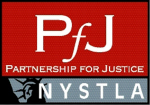 As structured settlement consultants with expertise in Medicare and Medicaid related issues, we participate in hundreds of settlement negotiations for personal injury lawsuits every year. This gives us a very good sense of the latest trends and tactics being used by all the parties and mediators during the process. Every once in a while we come across the defense trying out a new line of attack that strikes us as questionable.
As structured settlement consultants with expertise in Medicare and Medicaid related issues, we participate in hundreds of settlement negotiations for personal injury lawsuits every year. This gives us a very good sense of the latest trends and tactics being used by all the parties and mediators during the process. Every once in a while we come across the defense trying out a new line of attack that strikes us as questionable.
That’s exactly what happened in one of our recent cases. We were helping a client negotiate a settlement for a case involving a woman who had become quadriplegic in a car accident. As a result the plaintiff requires extensive medical care for the rest of her life. The woman’s income was below the poverty level so she was covered by Medicaid insurance providing around the clock home attendants/residential care. During the pendency of the case plaintiff started receiving Social Security Disability benefits as well, which eventually forced her into Medicare as her primary healthcare coverage.
As typically happens in the course of settlement discussions, plaintiff and defense counsel exchanged expert reports in order to flesh out their respective positions on the patient’s anticipated future Life Care Plan, which is the key factor in determining the appropriate level of damages. In this case the defense proffered three experts for exchange: a medical doctor, an economist and an health insurance expert.
All this might sound like exactly what counsel should expect to encounter in the course of settlement discussions, with expert witnesses offering testimony and rebuttal evidence on the estimated future costs of the proposed Life Care Plan. But we immediately noticed a red flag in the witness disclosure filed for the defense, “a health insurance expert.” This health insurance expert testimony was being offered up to rebut the plaintiff’s proposed Life Care Plan and analysis of expenses on the grounds, among others, that such expenses would largely be covered by procurement of health insurance under the Patient Protection and Affordable Care Act of 2010, otherwise known as Obamacare.
We’ve heard of this particular line of argument being thrown out at mediation by defense but we always shot it down for our clients. What concerned us was how the defense in this case took it further with the exchange of a 3101(d) expert. The gist of the expert’s proffered testimony was that due the availability of coverage under Obamacare, the plaintiff would be able to purchase private insurance since the law now prohibits denial of coverage based on pre-existing conditions. As a result, the defense expert disputed the Life Care Plan costs as unreasonably high on the grounds that a healthcare insurance plan with a market cost of about $550 per month would provide adequate therapy, prescriptions and hospital costs and a supplemental home health care plan for attendants would run about $475 per month.
This is a completely disingenuous line of argument. First of all, given the pending Supreme Court litigation and all the political uncertainty regarding the future status of Obamacare, it strikes us as extremely problematic to base an assessment of one’s anticipated future medical costs on the continued availability of Obamacare mandated insurance coverage. Even more egregious, this line of argument is actually in contravention of current legal requirements inasmuch as the plaintiff, as a recipient of Medicare and Social Security Disability benefits, was completely ineligible for coverage under an Obamacare policy. It simply would be illegal for anyone to sell her such a policy. In addition, New York State is a “collateral source” state so none of the defense’s arguments could ever get in front of a jury and would only be introduced in a post trial collateral source hearing.
Settlement negotiations for plaintiffs who are covered by Medicare and Medicaid can be very tricky. I hope the defense bar doesn’t start a trend with Healthcare experts. There are a lot of nuances involved in the regulations and requirements for both the past (subrogation of liens) and preservation of one’s government eligibility (Special Needs Trusts or Set- Asides). In fact, plaintiff’s attorneys not only should be aware of what defense is trying to do but also should be using Medicare and Medicaid issues as a sword to maximize their settlements and protect their clients.
Caveat plaintiff’s counsel. Beware of health insurance experts proffering bogus expertise!


Leave a Reply